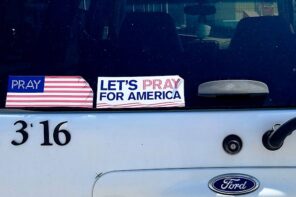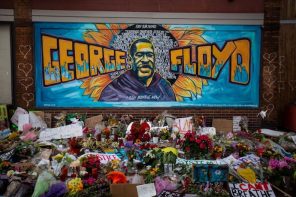Editor’s Note: Yesterday RD received a copy of the following letter, which was signed by all ten trustees of the First Church of American Religion. We were able to verify that the missive is genuine. Thus far there has been no response forthcoming from the Rev. David Brooks. The trustees appear to have been triggered by a recent Brooks column dealing with tribulations of working class men.
Dear David,
As you know, we called you to this pulpit many years ago full of enthusiasm for your blazing intellect and with boundless confidence in your ability to lead us through tumultuous times with wisdom and care. We could not be more pleased that you have established yourself as a beacon of insight, not only in service to our vast congregation but in service to an entire befuddled and dispirited nation that seems to have lost its way.
We are proud that your new book deals explicitly with religious themes. You have been leaning in this direction for a long time, and we are glad to see you make your conviction that good religion is essential to good living ever more explicit. Your own intense and transformative religious experience shines through these pages, and we will never disparage the validity of any experience of the sacred.
But we are responsible trustees of this church, and here is our present difficulty: your ideas about good religion and its role in national life strike us as far too narrow. To take just one example, your recent column about disconnected “haphazard” working class men identifies a real problem; there is no doubt on that score. But you place religious practice and affiliation in the category of palliative resources for those being crushed by the new ruthless economy, whereas the religion usually referred to as prophetic—a form of religion we still regard as indispensable—sees faith as much more than a kind of backstop for those who suffer.
Unfortunately, this is a move we see you make repeatedly in your thought process. You see religion working primarily on the side of accommodation and adjustment, almost never on the side of critique and revolution. These days you never choose, as texts to anchor your preaching, texts that we still consider essential in relation to social arrangements: e.g., Leviticus 25 on the urgency of release from debt and redistribution of resources; or Isaiah 3’s challenge to those who are “grinding the faces of the poor”; or, for that matter, Jesus of Nazareth’s lifelong blistering critique of concentrated wealth, predatory lending, and complaisant religious officials’ blessing of the same.
Of course, as you always insist, character is important, and religion is in part about forming strong character. But we are deeply concerned about the part of religion that seems to have gone missing for you: the part about religion forming a just society in which all can grow and thrive and not be consumed with how they will find a way to subsist. Certainly, the biblical testimony is clear about the intimate relationship between the irruption of individual disorders and an underlying social disorder that requires social healing; i.e., a turn toward public justice that necessarily involves pulling down the powerful from their thrones (Luke 2).
In the same vein, we see you too often misconstruing our national history as an essentially triumphal achievement without adequately acknowledging the deep strain of violence that is very much related to the particularly raw form of capitalism that took root here in lockstep with genocidal settler colonialism and the systematic commodification of African flesh.
Observers as far back as Tocqueville and Martineau were able to see a connection between America’s corrosive extreme capitalism and its corrosive hyperindividualism, but you seem unable, or unwilling, to see it clearly enough or to preach it strongly enough. We fear this may be on account of your lifelong identification with the powerful–with that class of Americans who actually believe that their wealth and privilege has been earned and that anyone who puts her shoulder to the wheel can enjoy a reasonable level of ease and comfort.
Whatever the reasons, we have concluded, reluctantly, that your sermons are growing stale, and worse, that they partake of a blinkered and corrupted religious sensibility. Of course we are aware that a corrupted and colonized religion has long blessed the white American project, with the Gospel of Wealth almost always crowding out the gospel of community flourishing. For us at this time, however, any form of religion that afflicts the already afflicted, while comforting the already comfortable, is simply no longer acceptable.
You may feel yourself capable of changing and thus of redeeming your ministry with us. We are eager to hear what you have to say on that score. But please do understand that we expect to be seeking new leadership, and we urge you to begin exploring new opportunities for yourself in accordance with our stated intention.
Yours in service,
[individual trustee names omitted for the sake of privacy]








